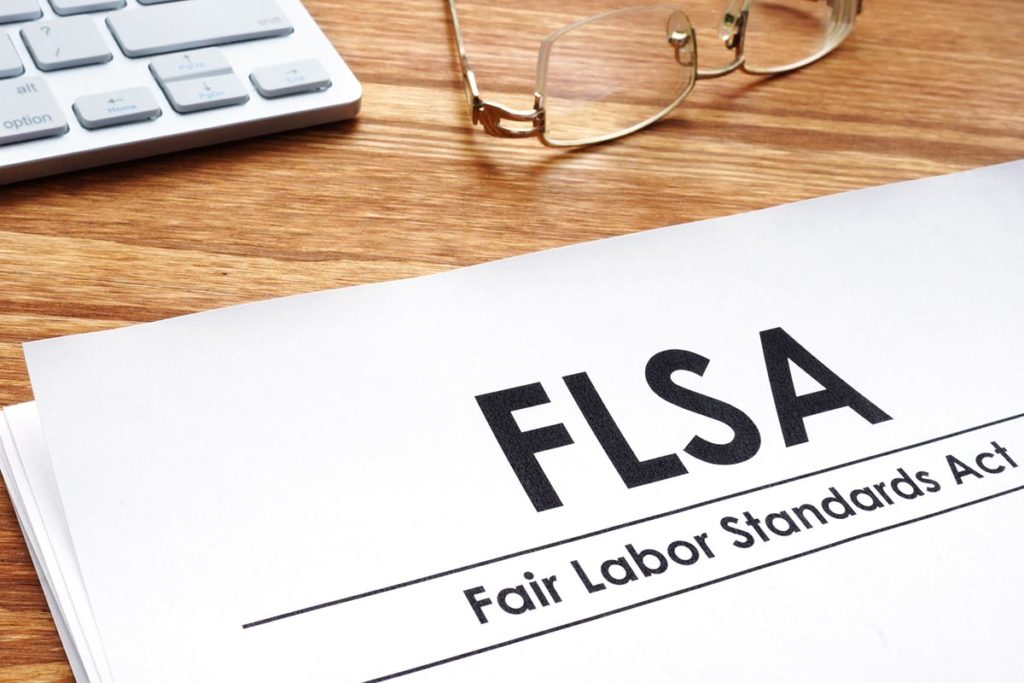How Bonuses Affect Overtime Under the FLSA
Last Updated on April 13, 2024

The Fair Labor Standards Act (FLSA) is a cornerstone of labor law in the United States, ensuring that most employees receive at least the federal minimum wage for all hours worked and appropriate overtime compensation. This article discusses how bonuses affect overtime for non-exempt employees, providing essential insights for employers and employees alike.
Table of contents
FLSA Basics
At its core, the FLSA mandates that non-exempt employees in the United States must be paid at least the federal minimum wage for all hours worked. Moreover, for any work over 40 hours in a single workweek, employees are entitled to overtime pay at a rate of one and one-half times their regular rate of pay. The calculation of the “regular rate” of pay is pivotal in determining overtime compensation, encompassing all remuneration for employment except certain specified exclusions.
Bonus Types and Their Impact on Overtime
Discretionary Bonuses
Discretionary bonuses are those for which the decision to pay the bonus and the bonus amount are determined at the employer’s sole discretion near the end of the performance period, without prior promise or agreement. Common examples include bonuses for extraordinary efforts, employee-of-the-month awards, and severance bonuses. These are excluded from the regular rate of pay calculation and cannot be credited towards overtime compensation under the FLSA.
Nondiscretionary Bonuses
Contrastingly, nondiscretionary bonuses must be included in the regular rate of pay. These bonuses are typically announced to employees to encourage efficiency or rewarded based on a pre-established formula. Examples include production bonuses, quality and accuracy bonuses, and safety bonuses. Since employees anticipate these bonuses, they are considered nondiscretionary and impact the calculation of overtime pay.
Gifts and Other Exclusions
Certain payments can be excluded from the regular rate, such as gifts for special occasions, provided they are not dependent on hours worked, production, or efficiency. Sign-on bonuses may also be excluded under certain conditions but must be carefully considered to ensure compliance with FLSA guidelines.
Calculating Overtime with Bonuses
To calculate how bonuses affect overtime, employers must first determine the employee’s regular rate of pay by dividing total compensation (including nondiscretionary bonuses) by the total hours worked. The half-time premium for each overtime hour is then calculated and multiplied by the number of overtime hours worked to determine the additional overtime compensation due.
Examples of Overtime Calculation
With Nondiscretionary Bonus
An employee earning a base rate and a promised bonus for specific achievements would have their total compensation divided by hours worked to find the regular rate, from which overtime pay is calculated.
With Shift Differential and Nondiscretionary Bonus
Incorporating a shift differential and a bonus into the regular rate calculation demonstrates the nuanced approach required to ensure fair compensation for overtime hours.
With Both Nondiscretionary and Discretionary Bonuses
When an employee receives both types of bonuses, only the nondiscretionary bonus is included in the regular rate calculation for determining overtime pay. The discretionary bonus remains excluded but is still paid to the employee.
You can find more detailed examples of overtime calculations in the Department of Labor’s Fact Sheet #56C: Bonuses under the Fair Labor Standards Act (FLSA)
Understanding How Bonuses Affect Overtime
Understanding how bonuses affect overtime under the FLSA is key HR focus area for employers to ensure they stay in compliance with federal regulations. By distinguishing between discretionary and nondiscretionary bonuses and accurately incorporating them into overtime calculations, businesses can avoid costly errors and maintain a positive working relationship with their employees.
Ensuring FLSA Compliance with MyHRConcierge: Navigating Its Complexities with Expertise
MyHRConcierge offers a comprehensive suite of HR management solutions tailored to help employers navigate the complex landscape of FLSA compliance effectively. By leveraging their expertise, businesses can minimize the risk of costly litigation and enhances overall workforce satisfaction by ensuring compliance with federal regulations. Contact MyHRConcierge today at 855-538-6947 xt 108, ccooley@myhrconcierge.com or schedule a free consultation at a convenient time for you below:
